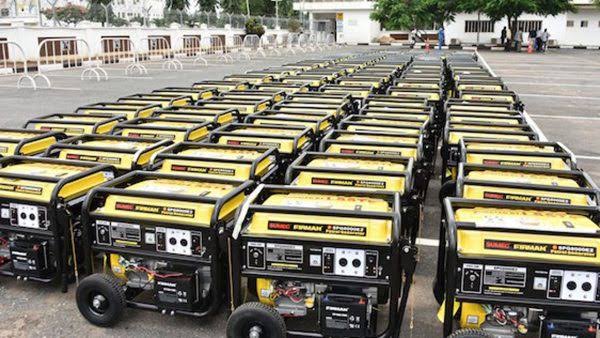Nigeria is the top importer of premium motor spirit (PMS) and diesel generators in Africa, according to the International Renewable Energy Agency (IRENA).
The organisation made this disclosure in a new paper titled “Renewable Energy Roadmap: Nigeria”, which was produced in collaboration with the Energy Commission of Nigeria (ECN).
Nigeria has a poor energy infrastructure, with major hydropower facilities making about 14% of on-grid generation and natural gas power stations accounting for 86%. However, the operational performance of these power plants has been significantly hampered by the lack of gas, equipment failures, seasonal water shortages, and restricted grid city, which has a negative impact on the delivery of electricity.
Businesses and families rely on generators: Many homes and businesses have had to turn to these measures due to power shortages.
IRENA also highlights the usage of fossil diesel/gasoline generators by 84% of urban households and the ownership or shared use of generators by 86% of businesses in Nigeria. In the report, it stated:
“Nigeria tops Africa in terms of generator imports and ranks among the top importers globally thanks to the several million captive generators that have been brought into the nation. The unreliable electricity infrastructure in Nigeria and the comparatively expensive captive generation have a negative influence on the economy across all sectors, from the residential to the industrial.
“Due to the high costs of captive generation, small and medium-sized businesses and people spend two to three times as much on kerosene, diesel, and gasoline as they do on grid-supplied electricity.”
According to government statistics, Nigerian products are around a third more expensive than imports in the industrial sector.
And finance is required for Nigeria’s power sector. Stakeholders in the industry say that in addition to other difficulties, lack of money is a significant problem that needs to be addressed to power the nation for the benefit of its more than 200 million residents as Nigeria battles with access to power.
According to the IRENA assessment, the Nigerian power sector’s ongoing struggles are primarily due to inadequate financing. To ensure a steady supply of electricity, the Nigerian power sector will need to receive significantly more investment.
To improve family access to electricity, it will take a combined expenditure of almost $34.5 billion to reach that goal by 2030. According to the Transmission Company of Nigeria (TCN), upgrading and expanding the system will cost $1 billion per year for the next ten years.
What is more, the switch to renewable energy in Nigeria. IRENA says Nigeria’s lack of adequate power infrastructure and capacity creates the necessary conditions for a paradigm shift in favour of renewable energy.
According to IRENA, Nigeria would benefit greatly from a shift away from home fossil fuels and toward domestic renewable energy sources.
The analysis also showed that, in a 2°C scenario that complies with the Paris Agreement, employment related to fossil fuels may decline by 80% while employment related to renewable sources may expand fivefold.
Therefore, in such a situation, encouraging local development of abundant renewable energy resources may inspire local innovative renewable energy champions, enabling the establishment of local jobs and spin-off companies.
According to the road map, natural gas, other renewables and hydropower make up the remainder of the primary energy requirement of Nigeria and are used in the power sector for the most part.
“Given the significant cost reductions of the technologies in recent years and the enormous natural resource that Nigeria has, especially for solar power,” says the author, “the low penetration of variable renewables such as wind and solar shows the opportunity that lies in integrating them in the power sector.”
Some current power projects in Nigeria were mentioned in the report. To aid in the development of Nigeria’s transmission infrastructure, the World Bank is funding a $486 million International Development Association loan for the Nigerian Electricity Transmission Access Project.
The Presidential Power Initiative, a three-phase electrification project with Siemens AG of Germany, aims to increase Nigeria’s power to 25,000 megawatts (MW), or N1.15 trillion, or almost USD 3.8 billion, by 2020.


